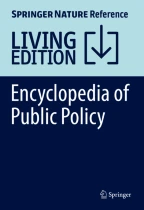
Policy change, or the creation or modification of an existing public policy, is a quintessential topic for society and policy process scholars. Its importance lies in how governments can adapt through public policies to signal their responsiveness to societal needs and wants. Policy change also lies at the foundation of ongoing scholarship.
Public policy can be defined as a formal government action (or inaction), often to serve the public interest in response to an issue or problem (Dye, 1972). When public policies are passed, they usually reflect the values and understandings of those individuals and organizations formulating the policy (Sabatier, 1987). Thus, public policies are inherently political and reflect the positions of those with and in power. Nevertheless, public policies are also instrumental in being created to mitigate or solve perceived problems. Scholars have developed various measurements to understand what is changing, understanding patterns over.